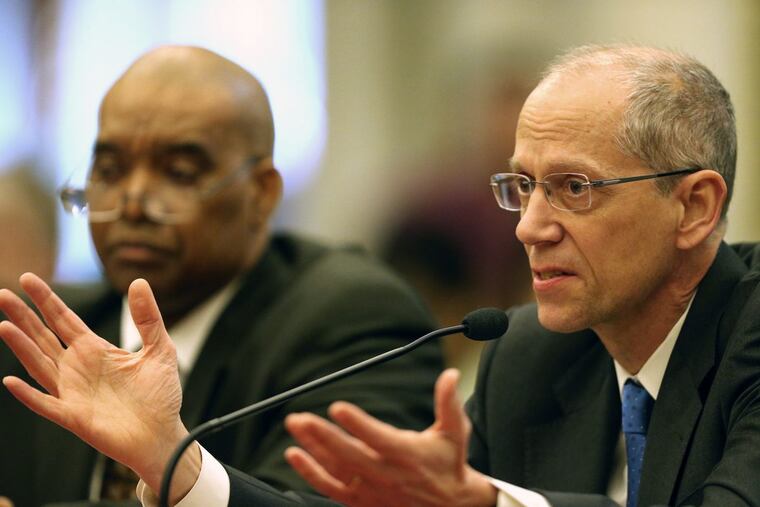Only a well-informed Philadelphia City Council can battle the opioid crisis | Editorial
Widespread addiction hasn't waited for Council to get up to speed. The upswing in overdose deaths began in 2011.

The opioid crisis has been cutting its deadly swath throughout the city for a few years now, taking 1,200 lives in the last year alone. It's essential for every public official, including City Council members, to be fully informed.
But at a recent hearing, called to assess the city's response to the crisis, members showed little respect for the time of the very people who fight the epidemic every day. Advocates showed up hoping that someone in authority would listen to what they see, what they have learned, and how the battle against what Health Commissioner Thomas Farley calls the "worst public health crisis in this century" might be won.
Instead of hearing them, Council spent three hours grilling officials from Mayor Kenney's administration on its policies and procedures. That is, of course, a valid line of inquiry, but the Monday hearing should have been better organized to make sure the witnesses who showed up didn't waste those hours waiting. Those who could not speak last week will have a chance to be heard at a second hearing April 4, scheduled to last two hours. That's not long enough for a problem as big and complicated as the opioid crisis.
Widespread addiction hasn't waited for Council to get up to speed. The upswing in overdose deaths began in 2011 with about 400. But in 2013, Councilmen Bobby Henon and Brian O'Neill championed obstructionist legislation that could be used to ban methadone clinics in their Northeast districts. In that same year, about 500 died of drug overdoses. Just two years later in 2015, the number hit 700. Last year, it was 1,200.
Even all these years into the crisis, Council Members Henon and Mark Squilla insisted on focusing on abstinence when medically assisted treatment is considered the most effective treatment by modern standards. Their call for abstinence suggests an ignorance about the fact that addiction is a disorder, not a choice. Henon and Squilla are no doubt reflecting the concerns of some constituents. But this public health crisis doesn't respect geographic boundaries, and people are dying all over the city.
To drive that point home, the health commissioner is working to show how last year's overdose deaths were distributed throughout the city's 10 Council districts. His preliminary figures show that the most – 287 — died in the Seventh District, represented by Councilwoman Maria Quiñones-Sánchez. Second was the Sixth District, represented by Henon, where 122 died. In the Fifth District, represented by Council President Darrell Clarke, 95 died, and in the Eighth District, represented by Councilwoman Cindy Bass, 66 died. Farley hasn't finished mapping the death toll but said every other district has at least 40 victims.
As the hearing closed, Bass told the frustrated advocates: "This is something that needs to be thoroughly discussed and vetted. We're going to continue the conversation until there's no conversation to be had."
Talk is fine, but well-informed action is required. If Council members aren't fully informed, how will they grapple with the really complicated issues like safe injection sites or the housing needs of those addicted to opioids? They should understand the issue well enough to balance the need for users to get the best possible care with protecting neighborhoods from being overwhelmed.